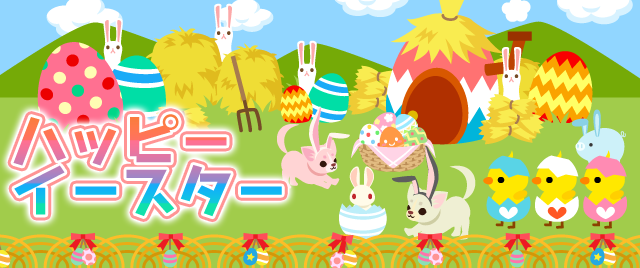A few days ago, at the Center of the Intercultural Association Japan-Italy Sakura, prof. Aya Nakata suddenly entered the room and offered us small chocolate eggs wishing us a Happy Easter.
It was an unexpected act for me, very kind, and I appreciated it a lot. I have recently learned that many foreign people who have lived in Italy for years know our traditions and our history very well, often even better than us, although obviously our traditions are not part of their culture.
For a Japanese, who is generally Shintoist/Buddhist (Christians are a small yet very active minority there), Easter is one of the feasts of “gaijin”, foreigners. In fact, in their language, they took the English “Happy Easter” and ported it in their phonetic, ハ ッ ピ ー イ ス タ ー (Happī īsutā).
For those who are Christian, Easter is the center of faith: everything is based on believing the witnessing of those who have seen with their own eyes the man-Jesus, crucified, dead, buried and risen. Everything else, from the form in which religion declines this message, to the ethics that every believer should behave, is a consequence of this encounter.
An encounter that took place two thousand years ago between people like us and Jesus.
And that still happens today, for those who believe. (Indeed: those who believe say that this encounter happens with everyone anyway).
Just like all the meetings we do every day in our activities. We meet looks, sounds, words, bodies, thoughts. Like on the mat, after all.
A kind Japanese who wishes me Easter is a challenge, a provocation that pushes my understanding to its limit.
And it also pushes my Catholicism to its core. At the heart of a Love that identifies itself with a person, who loves everyone without distinction with the heart of a Father, a Mother, a Brother and who asks for “nothing else” but to immerse ourselves in this Love: “Love the Lord your God with all your heart and with all your soul and with all your strength and with all your mind; and love your neighbor as yourself”.
I would be, we should be pitied, however, if we were not aware that the world we live in is not a cohesive world. That the religious message, whatever it may be, is often ignored, mocked with suspicion, hindered.
That talking about these things is boring to death for many people.
Yet the celebration of Easter recalls that encounter which marked history and which raised questions for men and women of all times and all latitudes.
Like the Japanese writer Shusaku Endo, author of several novels and a book, A life of Jesus, which is a fundamental reading to understand how the Japanese spirit can understand Christianity (and with it a good part of Western culture). You can very weel understand, for instance, how the “non resistance” of Jesus with his torturers is the main element that fascinates the people of the Rising Sun.
Easter, its message of love and full life, concerns everyone. It is an encounter we can make our own, because it is dense of universal values.
Slowly and constantly, thanks to continuous meetings on the mat, we build our path.
Slowly and constantly, witnessing such universal values at our best and despite our limitations, we can all build our path that leads us to the encounter with the root from which we all come.
How St. Augustine understood clearly:
“Love and do what you will. Whether you hold your peace, through love hold your peace. Whether you cry out, through love cry out. Whether your correct, through love correct. Whether you spare, through love must you spare. Let the root of love be within. For of this root can nothing come except that which is good”.

